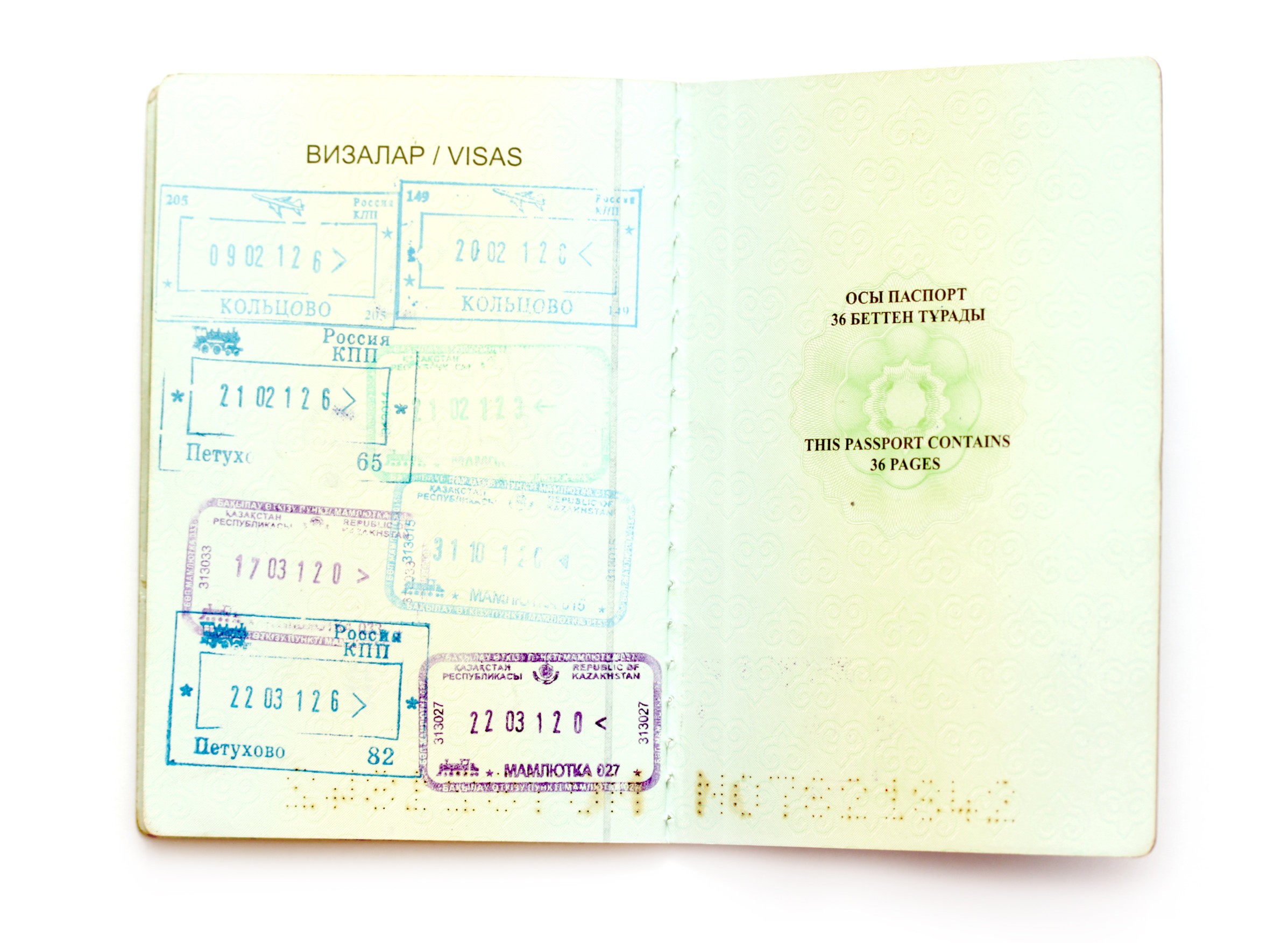
Last updated: January 2025
Foreigners planning an extended stay in Georgia must follow a process starting with an immigration visa application leading to residence permit acquisition, followed by obtaining a residence card. Compliance with regulations is crucial to avoid legal issues during their stay.
Georgia Audio Guide on Residence Permits with Application Tips

Types of Georgian Residence Permits
Georgia offers various types of residence permits to accommodate different needs and circumstances for foreign nationals. Here’s an overview of the primary types of residence permits available in Georgia:
Work Residence Permit:
This permit is designed for foreign nationals who have secured a job in Georgia. Applicants need to have a valid employment contract with a Georgian employer and provide proof of their professional qualifications. The permit is usually valid for one year and can be renewed annually as long as the employment continues.
Investment Residence Permit:
Aimed at individuals who make a significant economic contribution to Georgia, this permit requires proof of investment in local businesses, real estate, or other financial ventures. It is intended to encourage foreign investment and support the local economy. The permit’s validity can extend up to several years, depending on the nature and size of the investment.
Short-Term Residence Permit for Property Owners:
Foreign nationals who own property in Georgia can apply for this permit. It is usually issued for one year and is renewable as long as the property ownership is maintained. This type of permit requires proof of property ownership and its valuation.
Residence Permit for the Unlimited Period:
This permit allows for indefinite stay in Georgia and is usually granted to those who have held a temporary residence permit for an extended period and can demonstrate strong ties to the country. While the permit itself is indefinite, holders may need to undergo periodic renewals to confirm continued eligibility.
Study Residence Permit:
Issued to foreign students enrolled in Georgian educational institutions, this permit requires an admission letter from a recognized institution and proof of sufficient financial means to cover tuition and living expenses. The permit is generally valid for the duration of the academic program and can be renewed if necessary.
Family Reunification Residence Permit:
This permit is for family members of Georgian citizens or residents, including spouses, children, and parents. It requires proof of the familial relationship, such as marriage or birth certificates, and the residence status of the sponsoring family member. The permit is typically valid for one year and can be renewed annually.
Former Citizen Residence Permit:
This permit is available to individuals who were previously Georgian citizens and wish to return. Applicants need to provide proof of their former Georgian citizenship. The permit is typically valid for one year and is renewable.
Permanent Residence Permit:
Intended for individuals who plan to stay in Georgia indefinitely, this permit is often granted to those who have lived in Georgia on a temporary residence permit for several years, have made significant investments, or are married to a Georgian citizen. The permit is indefinite but subject to periodic renewals to confirm the holder's ongoing eligibility.
Qualification Requirements for Acquiring a Residence Permit
In Georgia, foreign nationals can obtain Residence Permits by meeting specific qualification criteria. Here are the primary eligibility conditions for acquiring a Residence Permit in Georgia:
- Employment: Those with a job offer from a Georgian company or organisation are eligible to apply for a Residence Permit.
- Investment: Foreigners who make substantial investments in Georgia, such as real estate purchases, business startups, or capital contributions to existing businesses, qualify for a Residence Permit.
- Education: International students enrolled in educational institutions in Georgia can apply for a Residence Permit for the duration of their study program.
- Family Reunification: Family members of Georgian citizens or foreign residents holding Residence Permits in Georgia are eligible to apply for a Residence Permit.
- Refugee and Asylum Status: Individuals granted refugee or asylum status in Georgia are entitled to a Residence Permit.
- Special Circumstances: In exceptional cases, foreigners with strong ties to Georgia, despite not meeting the standard criteria, may still qualify for a Residence Permit.
Procedure for Obtaining a Residence Permit in Georgia
Acquiring a Residence Permit in Georgia involves several sequential steps:
- Assess Eligibility: Examine the eligibility criteria corresponding to the residence permit you seek to ascertain your qualifications.
- Submit Application: Complete and submit your Residence Permit application online or in person at designated government offices, such as the Ministry of Foreign Affairs or the Public Service Hall of the Ministry of Justice. Ensure all required documents are accurately filled out and attached.
- Pay Application Fees: Adhere to the specified fee structure for your Residence Permit application, considering factors like permit type and validity duration.
- Await Processing: Allow authorities ample time to review your application thoroughly, as processing times may vary. Be prepared for potential delays during this stage.
- Collect Your Residence Permit: Upon approval, retrieve your Residence Permit promptly. It must be collected in person from designated government offices within a specified timeframe.
- Obtain a Residence Card: Within the designated time frame, apply for a Residence Card at a local Public Service Development Agency or Public Service Hall office. This card serves as official proof of your right to reside in Georgia.
Note: Given the potential complexities of the Residence Permit application process, consider seeking guidance from legal experts or immigration consultants to ensure the completeness and accuracy of your application.
Documentation Needed for Applying for a Georgia Residence Permit
Applying for a Residence Permit in Georgia mandates the submission of the following documents:
- Passport: Ensure your passport is valid and has at least one blank page.
- Completed Application Form: Fill out the official application form for the Georgia Residence Permit.
- Proof of Entry Legality: Present documentation validating your legal entry into Georgia, such as a valid visa or entry stamp.
- Residential Address Proof: Furnish details of your intended residence in Georgia.
- Police Clearance Certificate: Obtain a police clearance certificate from your home country or any nation where you resided for over 6 months in the past 3 years.
- Medical Certificate: Provide a medical certificate attesting to your freedom from infectious diseases.
- Financial Means Verification: Submit evidence showcasing your financial capacity to sustain yourself in Georgia, including bank statements, employment contracts, or financial records.
- Passport-size Photographs: Supply two recent passport-sized photographs as per specifications.
- Educational and Work Experience Certificates: Include certificates verifying your educational qualifications and work experience, if required.
Duration and Extension of Georgia Residence Permits

In Georgia, residence permits are typically granted for one year and require annual renewal, with the renewal process advised to commence at least two months before the permit's expiration date. To renew, applicants must submit an application along with the necessary documents. Required documentation includes a valid passport, a copy of the original permit, and proof of financial means.
Additional documents like medical certificates or police clearance certificates may be necessary. It's crucial to note that renewal isn't automatic, and failure to renew before expiration may result in penalties or deportation. Informing authorities of any changes in residence or employment during the permit's validity is mandatory. Adhering to correct procedures and submitting required documents ensures a smooth renewal process for Georgia residence permits.
Advantages of Acquiring a Georgia Residence Permit
Gaining a Residence Permit in Georgia brings numerous benefits for foreign nationals, including:
- Extended Stay: Residence Permit holders can prolong their stay in Georgia for up to one year, with the option to renew annually.
- Work and Business Opportunities: With a Residence Permit, foreign nationals can work and conduct business in Georgia without requiring separate work or business visas.
- Access to Education: Residence Permit holders are eligible to enrol in Georgian educational institutions, granting them access to the country's education system.
- Healthcare Access: Holders of Residence Permits can avail themselves of Georgia's reputable and relatively affordable public healthcare services.
- Freedom of Movement: Residence Permit holders enjoy unrestricted travel within Georgia.
- Real Estate Ownership: Residence Permit holders are permitted to purchase and possess property in Georgia.
- Visa-Free Travel: Georgia extends visa-free or visa-on-arrival privileges to citizens of numerous countries. A Residence Permit facilitates visa-free travel to many destinations for foreign nationals.
Obstacles Encountered in Acquiring a Georgia Residence Permit
Obtaining a Residence Permit in Georgia can pose several challenges for applicants, including:
- Language Hurdles: The application process necessitates documents and forms in Georgian, which can be daunting for non-native speakers.
- Limited Understanding of Procedures: Applicants may need help comprehending the intricate application procedures, required documentation, and timelines.
- Documentation Completeness and Accuracy: Providing comprehensive and accurate documentation, such as proof of financial stability and criminal record checks, can be demanding and crucial for application success.
- Financial Verification: Demonstrating financial stability, particularly for self-employed individuals or those with irregular incomes, can be arduous.
- Criminal Background Checks: Applicants with a criminal record may face hurdles, as a clean criminal background check is mandatory.
- Regulatory Changes: Georgia's Residence Permit regulations undergo periodic revisions, necessitating applicants to stay updated with the latest requirements.
- Processing Timeframes: The application process's duration can be prolonged, leading to delays due to the high volume of applications.
Guidance for Georgia Residence Permit Applications
Securing a Residence Permit in Georgia presents numerous advantages for foreign nationals, enabling legal residence and work opportunities in the country. However, the application process can be intricate, often posing challenges for applicants.
It is crucial to thoroughly understand the eligibility criteria and required documentation for the Residence Permit. Seeking assistance from reliable sources is recommended to navigate the process effectively.
Disclaimer: This information is intended for general guidance and was last updated in January 2025. While we strive to ensure the accuracy and completeness of the information, we cannot guarantee it and accept no liability for any errors or omissions. Visa requirements, application procedures, and fees are subject to change, and applicants should verify the most current information through the official government website or relevant authorities.
FAQS
The initial step in obtaining a residence permit in Georgia is to apply for an immigration visa.
Foreigners must apply for a residence permit within 30 days of their arrival in Georgia.
Residence permits are typically issued by the Ministry of Foreign Affairs or the Public Service Hall of the Ministry of Justice in Georgia.
Residence permits are typically issued for one year and can be renewed annually.
A residence card serves as proof of legal residency in Georgia and contains personal information such as name, date of birth, and residence permit number.

To help us improve